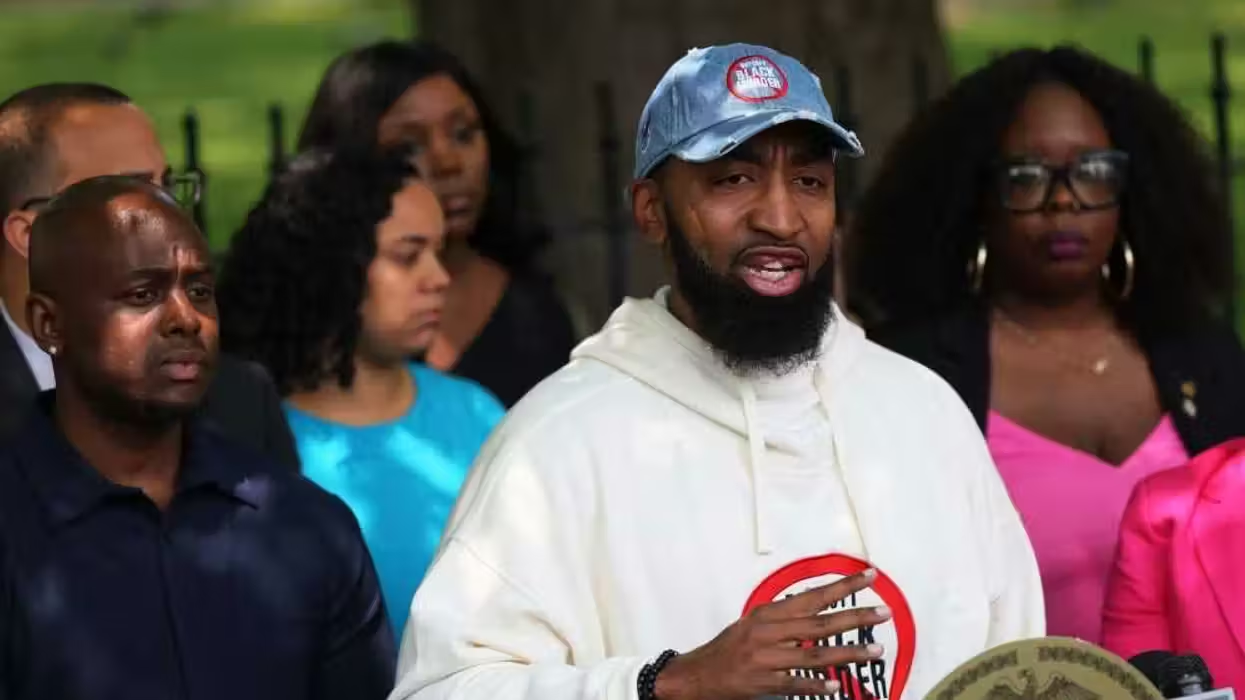
© 2025 Blaze Media LLC. All rights reserved.
Did the Woman Ordered to Decrypt Her Computer Really Forget Her Password?
February 06, 2012
“... you need to put her in jail until she breaks down and does what she is ordered to do."
 In January, we reported about the Colorado woman who was ordered by a district court judge to comply with prosecutors' wishes and decrypt her laptop, a ruling that defense lawyers say violates her Fifth Amendment rights. Now, Wired reports Ramona Fricosu might have conveniently forgotten her password.
In January, we reported about the Colorado woman who was ordered by a district court judge to comply with prosecutors' wishes and decrypt her laptop, a ruling that defense lawyers say violates her Fifth Amendment rights. Now, Wired reports Ramona Fricosu might have conveniently forgotten her password.
Wired writes:
The authorities seized the Toshiba laptop from defendant Ramona Fricosu in 2010 with a court warrant while investigating alleged mortgage fraud. Ruling that the woman’s Fifth Amendment rights against compelled self-incrimination would not be breached, U.S. District Judge Robert Blackburn ordered the woman in January to decrypt the laptop.“It’s very possible to forget passwords,” the woman’s attorney, Philip Dubois, said in a telephone interview. “It’s not clear to me she was the one who set up the encryption on this drive. I don’t know if she will be able to decrypt it.”
But prosecutor Patricia Davies says that Fricosu has never said that she may have forgotten her password in legal documents.
Wired points out that cases where defendants have been ordered to decrypt computers are rare, but the shift with this case is that prosecutors only believe the laptop to contain evidence. In a case of child pornography where the judge ordered a computer to be decrypted, prosecutors had actually seen the evidence on the computer before. Wired reports that prosecutors believe the laptop contains evidence due to a conversation between Fricosu and another defendant while in jail.
Fricosu was given until Feb. 21 to unlock her computer. If she does not open the laptop, the judge will have to determine if Fricosu has actually forgotten her password or if she should be held in contempt:
“The government will probably say you need to put her in jail until she breaks down and does what she is ordered to do,” Dubois said. “That will create a question of fact for the judge to resolve. If she’s unable to decrypt the disc, the court cannot hold her in contempt.”
Many civil-liberties groups across the country are opposed to the prosecution's call for decryption and the judge's ruling saying it test of rights against self-incrimination in a digital world.
The Associated Press contributed to this report.
Want to leave a tip?
We answer to you. Help keep our content free of advertisers and big tech censorship by leaving a tip today.
Want to join the conversation?
Already a subscriber?
more stories
Sign up for the Blaze newsletter
By signing up, you agree to our Privacy Policy and Terms of Use, and agree to receive content that may sometimes include advertisements. You may opt out at any time.
Related Content
© 2025 Blaze Media LLC. All rights reserved.
Get the stories that matter most delivered directly to your inbox.
By signing up, you agree to our Privacy Policy and Terms of Use, and agree to receive content that may sometimes include advertisements. You may opt out at any time.






